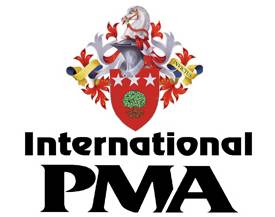Human Resources Management
Course Aims
- To provide the student with the skills and knowledge to understand the need for effective Human Resources Management for the organisation
- To be aware of the impact on Information Technology and Globalisation on Human Resources Management Policies and Practices
Learning Outcomes
At the end of the course the student will have the ability to:
- Apply the theories of individual and group behaviour in the design of employee salary, welfare and motivational programmes
- Design and Implement HRM policies for the organisation
- Evaluate the different forms of Employee Recruitment and Selection
- Develop effective Job Designs
- Anticipate the influence of technology on organisations and the HRM function
Course Syllabus
- Human Resource Management and its Organisational Context
- Introduction to HRM and its function within organisations
- The Labour Market, theories and controversies
- The need for HRM Planning within organisations
- Creation of Manpower Plans
- Supply and Demand
- Job Design, theories and practice
- Teamworking
- Recruitment and Selection
- Human Resource Development
- The Learning Organisation
- Concepts of Learning
- Process of Development and Learning
- Creation of a Human Resource Development Plan
- Management Development, Organisation and Implementation
- The Employment Relationship
- Employment Contracts and their significance
- Terms and Conditions of Employment
- Collective Bargaining
- Rewards Design and Management
- Employee Empowerment
- New Technology
- The effect of New Technology and IT on HRM practices
Recommended Text
Book Title -:Human Resource Management: Gaining a Competitive Advantage
Author -: Noe et al.
Publisher -: McGraw Hill
ISBN No -: 0-07-228518-4
Additional Reading
Book Title -:Managing Human Resources (13e)
Author -: Bohlander & Snell
Publisher -: Thomson South-Western
ISBN No -: 0-324-18405-0
Management Decision Making
Course Aims
- provide the student with the necessary skills, tools and techniques to solve business problems
Learning Outcomes
At the end of the course the student will have the ability to:
- Analyse and interpret data for management decision making
- Develop methods for business forecasting
- Formulate and interpret tests of hypotheses in business context
- Use control charts for quality control purposes
Course Syllabus
- Introduction
- The role of Quantitative Techniques in business
- Models in Quantitative Decision Making
- Use of Computers
- Presentation of Data
- Bar, Pie charts
- Frequency Distributions
- Histograms
- Lorenz curves
- Time Series Graphs
- Z Charts
- Scatter diagrams
- Statistics
- Averages and measures of variability
- Aggregated data
- Index numbers
- Probability
- The multiplication and the addition rule
- Probability distributions
- Binomial Distribution
- Normal Distribution
- Decision Making
- The decision making problem
- The maximax and the minimin criteria
- Decision making under uncertainty
- Risk and risk analysis
- Decision trees
- Market Research
- Populations and Samples
- Central Limit Theorem
- Sampling Distribution
- Confidence intervals
- Hypothesis tests
- Quality Control
- Techniques in Quality Management
- Statistical Process control
- Control Charts
- Pareto Charts
- Ishikawa Diagrams
- Forecasting
- Forecasting approaches
- Trend projections
- Time-series models
- Regression
- Linear regression
- Correlation coefficient
- Non-linear regression
- Multiple regression
- Linear Programming
- Problem formulation
- Sensitivity analysis
- Graphical solutions
- Stock Control
- Stock control problems
- Economic Order Quantity
- The reorder cycle
- Just in Time
- Project Management
- Network diagrams
- Precedence diagrams
- Gantt Charts
- Simulation
- Developing the simulation model
- Simulation flowchart
Recommended Text
Book Title -:Quantitative Methods for Decision Makers(3e)
Author -: Mik Wisniewski
Publisher -: FT Prentice Hall
ISBN No -: 0-273-64684-2
Organizational Behaviour
Course Aims
- To provide the student with the understanding of the human and behavioral aspects of management
- To enable the student to make decisions concerning job design, job motivation, group management and organisational change and development
Learning Outcomes
At the end of the course the student will have the ability to:
- Develop awareness of the behavioral issues involved within the organisation and how it affects organisational performance
- Understand individual differences and group processes and how it affects individual and group performances
- Examine motivational issues and its impact on job design and individual performances
- Assess leadership, power and organisational issues including culture and their effect on organisational performance
- Develop an understanding of organisational change processes
Course Syllabus
- The influences of social sciences on the study of organisational behaviour
- The individual in the organisation, perception, personality and traits including locus of control, introversion, extroversion, socially acquired needs; application of theories in practical situations
- Theories of motivation including content and process theories, behaviour modification, practical applications of motivational theories including job design.
- The nature of groups, formal and informal groups, group cohesiveness, groupthink, characteristics of an effective work group, group interactions, effective group decision making, quality circles, Japanese approach to group decision making.
- Leadership defined, power, leadership theories trait theories,action centred leadership, consideration and structure, contingency approaches, path-goal theories, practical application of leadership theories.
- Principles of effective Organisational design, mechanistic and organic structures, functional, product, territorial, matrix designs, delegation, span of control issues, contingency approaches to organisational design including examining work of Perrow, Woodward, Burns and Stalker, Lawrence and Lorsch.
- Organisational change, organisational crisis, effective change processes, resistance to change, organisational development (OD), OD techniques and interventions, team building, grid training
Recommended Text
Book Title -:Organisational Behaviour
Author -: Robert Kreitner, Angelo Kinicki
Publisher -: McGraw Hill
ISBN No -: 0-07-250184-7
Additional Reading
Book Title -:Management and Organisational Behaviour(4e)
Author -: Mullins, L J.
Publisher -: Financial Times Pitman
Information Systems Management
Course Aims
- To equip the student with the understanding of Information Technology and its impact on business and strategic management
- To provide the student with the ability to critically assess computing and information needs of the organisation
Learning Outcomes
At the end of the course the student will have the ability to:
- To understand the importance of computing and IT for organisations today
- To have the requisite knowledge to evaluate computing and IT needs of the organization
- To understand how information systems can be applied within the strategic context of the organisation
- To understand the key issues in the development of information systems for operational, tactical and strategic purposes
- To design appropriate systems to support the strategic efforts of the organization
- To evaluate and understand new technology and its application to solve business problems and improve its efficiency and effectiveness
Course Syllabus
- Information Systems
- Concepts of Systems and Organizations
- Types and forms of Information Systems
- Information Technology and its impact on Strategic Management
- Business Process Reengineering and Information Technology
- Computer Systems
- Understanding basic types of Computer Hardware and Software
- Computer Files and Database Management Systems
- Communications Systems, Networking and Client/Server systems
- Distributed Systems, intranets, extranets and the Internet
- Business Applications and IT
- Analysis and development of Operational Information Systems
- Analysis and development of Tactical and Strategic Information Systems
- Development and use of Decision Support Systems and Expert Systems
- Enterprise Resource Planning Systems
- Planning and Development of Information Systems
- Planning for Information Systems
- Systems Analysis and Design including Structured Methods, CASE
- Information Systems Management
- Organisation of Information Systems
- Control of IT and Computing Systems
- Security Issues in Information Systems
Recommended Text
Book Title -:Management Information Systems (9e)
Author -: McLeod & Schell
Publisher -: South-Western
ISBN No -: 0-13-123021-2
Operations Management
Course Aims
- To develop an awareness of the need for Operations Management to achieve strategic aims and competitive advantage
- To develop and apply effective Operations Management methods in the organisation
Learning Outcomes
At the end of the course the student will have the ability to:
- Understand how operations management contributes towards the strategic goals for the organisation
- Develop and Design operation management systems
- Management effectively the supply chain
- Develop range of systems to maintain effective and efficient operations in manufacturing and service organisations
Course Syllabus
- The Strategic importance of Operations Management
- Introduction to Operations Management and Organisational Competitiveness
- Developing an Operations Strategy
- Designing the Operations Management System
- Product and Service Design
- Processes and Technologies
- Facilities
- Techniques of Project Management
- Managing the Supply Chain
- Objectives of Supply Chain Management
- Techniques of Forecasting
- Capacity and Aggregate Planning
- Inventory Management
- Just-In-Time and Lean Production
- Enterprise Resource Planning
- Scheduling
- Quality
- Foundations of effective Quality Management
- Statistical Process Control
- Waiting Line Models for Service Improvement
- Human Resources and their management in Operations Management
Recommended Text
Book Title -:Operations Management (9e)
Author -: Gaither & Frazier
Publisher -: South-Western
ISBN No -: 0-324-06685-6


